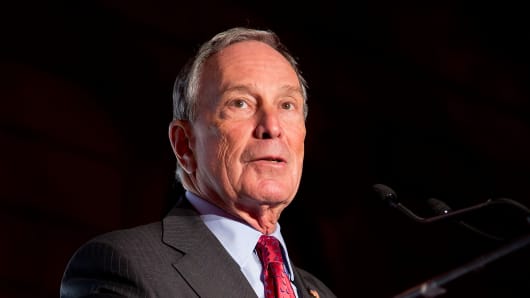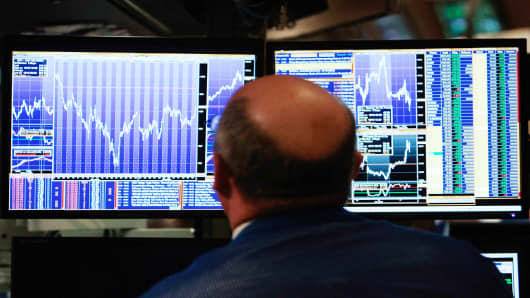As the Bloomberg terminal scandal plays out, two camps are ratcheting up arguments. This is overblown. And we need to regulate electronic platforms.
But amid the controversy, the data breach offers uncomfortable lessons about how we conduct modern business in a digital era—and how we're unprepared to ensure online transactions remain secure and private.
Seemingly everyone, from our employers to doctors, collect electronic data. We sign confusing waivers. We share massive amounts of information through e-mails and cloud computing platforms. All this digital data is stored somewhere. And archived. And how it's used exactly can be unclear. As data piles up, stop gaps to ensure protection aren't keeping pace, risk management experts say.
And perhaps even more worrisome, we're collectively more tolerant of leaving behind our digital footprint—few to no questions asked. "Our risk threshold for how data is collected and being used is going up," said Chris McClean, an expert on risk management and corporate responsibility at Forrester Research. "But we're not calling out companies on bad behavior," he said.
(Read More: Fed, Treasury Examining Bloomberg Use of Terminal Data)
Bloomberg News: 'Holding Ourselves Accountable'
A Goldman Sachs complaint sparked revelations that Bloomberg journalists had been able to access log-in details of top officials, including Federal Reserve chairman Ben Bernanke and former Treasury Secretary Tim Geithner. Bloomberg, a private company, now faces inquiries from the UK, U.S., German and European central banks and the U.S. Treasury. Banks' concerns, meantime, about online security are growing. Citigroup is banning traders in its foreign exchange division from accessing internal chat groups on their Bloomberg terminals, the Financial Times reports.
Bloomberg News Editor-in-Chief Matthew Winkler addressed the accusations of violating users' privacy in a May 13 article. "Our reporters should not have access to any data considered proprietary. I am sorry they did," he wrote. "The error is inexcusable."
On Friday, Bloomberg said it appointed Samuel Palmisano, former chairman and chief executive of IBM, to serve as an independent adviser on the company's privacy and data standards.
As inquiries into Bloomberg unfold, a key question and business lesson will be contract language, Forrester's McClean said. What details about use of clients' data were agreed upon between Bloomberg and its data-terminal customers?
(Read More: BloombergBlack: A Threat to Its Terminal Clients?)






